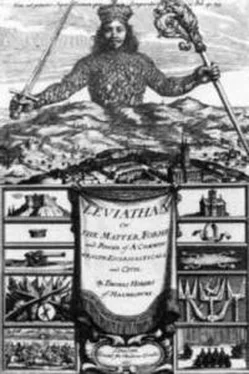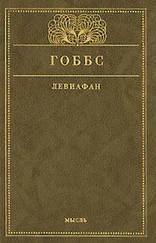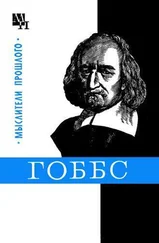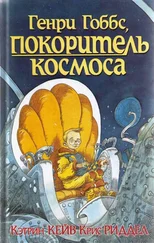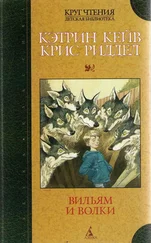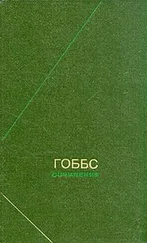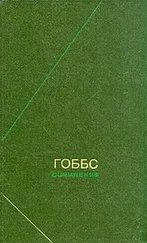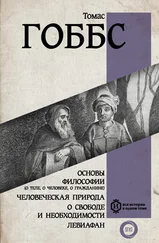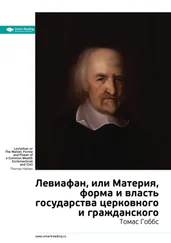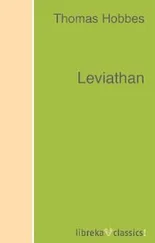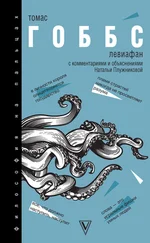Томас Гоббс - Leviathan
Здесь есть возможность читать онлайн «Томас Гоббс - Leviathan» весь текст электронной книги совершенно бесплатно (целиком полную версию без сокращений). В некоторых случаях можно слушать аудио, скачать через торрент в формате fb2 и присутствует краткое содержание. Год выпуска: 2014, Издательство: epubBooks Classics, Жанр: Философия, Политика, Религия, на английском языке. Описание произведения, (предисловие) а так же отзывы посетителей доступны на портале библиотеки ЛибКат.
- Название:Leviathan
- Автор:
- Издательство:epubBooks Classics
- Жанр:
- Год:2014
- ISBN:нет данных
- Рейтинг книги:4 / 5. Голосов: 1
-
Избранное:Добавить в избранное
- Отзывы:
-
Ваша оценка:
- 80
- 1
- 2
- 3
- 4
- 5
Leviathan: краткое содержание, описание и аннотация
Предлагаем к чтению аннотацию, описание, краткое содержание или предисловие (зависит от того, что написал сам автор книги «Leviathan»). Если вы не нашли необходимую информацию о книге — напишите в комментариях, мы постараемся отыскать её.
Leviathan — читать онлайн бесплатно полную книгу (весь текст) целиком
Ниже представлен текст книги, разбитый по страницам. Система сохранения места последней прочитанной страницы, позволяет с удобством читать онлайн бесплатно книгу «Leviathan», без необходимости каждый раз заново искать на чём Вы остановились. Поставьте закладку, и сможете в любой момент перейти на страницу, на которой закончили чтение.
Интервал:
Закладка:
I have shewed already, that the Kingdome of God by Christ beginneth at the day of Judgment: That in that day, the Faithfull shall rise again, with glorious, and spirituall Bodies, and bee his Subjects in that his Kingdome, which shall be Eternall; That they shall neither marry, nor be given in marriage, nor eate and drink, as they did in their naturall bodies; but live for ever in their individuall persons, without the specificall eternity of generation: And that the Reprobates also shall rise again, to receive punishments for their sins: As also, that those of the Elect, which shall be alive in their earthly bodies at that day, shall have their bodies suddenly changed, and made spirituall, and Immortall. But that the bodies of the Reprobate, who make the Kingdome of Satan, shall also be glorious, or spirituall bodies, or that they shall bee as the Angels of God, neither eating, nor drinking, nor engendring; or that their life shall be Eternall in their individuall persons, as the life of every faithfull man is, or as the life of Adam had been if hee had not sinned, there is no place of Scripture to prove it; save onely these places concerning Eternall Torments; which may otherwise be interpreted.
From whence may be inferred, that as the Elect after the Resurrection shall be restored to the estate, wherein Adam was before he had sinned; so the Reprobate shall be in the estate, that Adam, and his posterity were in after the sin committed; saving that God promised a Redeemer to Adam, and such of his seed as should trust in him, and repent; but not to them that should die in their sins, as do the Reprobate.
Eternall Torments What
These things considered, the texts that mention Eternall Fire, Eternal Torments, or the Word That Never Dieth, contradict not the Doctrine of a Second, and Everlasting Death, in the proper and naturall sense of the word Death. The Fire, or Torments prepared for the wicked in Gehenna, Tophet, or in what place soever, may continue for ever; and there may never want wicked men to be tormented in them; though not every, nor any one Eternally. For the wicked being left in the estate they were in after Adams sin, may at the Resurrection live as they did, marry, and give in marriage, and have grosse and corruptible bodies, as all mankind now have; and consequently may engender perpetually, after the Resurrection, as they did before: For there is no place of Scripture to the contrary. For St. Paul, speaking of the Resurrection (1 Cor. 15.) understandeth it onely of the Resurrection to Life Eternall; and not the Resurrection to Punishment. And of the first, he saith that the Body is "Sown in Corruption, raised in Incorruption; sown in Dishonour, raised in Honour; sown in Weaknesse, raised in Power; sown a Naturall body, raised a Spirituall body:" There is no such thing can be said of the bodies of them that rise to Punishment. The text is Luke 20. Verses 34,35,36. a fertile text. "The Children of this world marry, and are given in marriage; but they that shall be counted worthy to obtaine that world, and the Resurrection from the dead, neither marry, nor are given in marriage: Neither can they die any more; for they are equall to the Angells, and are the Children of God, being the Children of the Resurrection:" The Children of this world, that are in the estate which Adam left them in, shall marry, and be given in marriage; that is corrupt, and generate successively; which is an Immortality of the Kind, but not of the Persons of men: They are not worthy to be counted amongst them that shall obtain the next world, and an absolute Resurrection from the dead; but onely a short time, as inmates of that world; and to the end onely to receive condign punishment for their contumacy. The Elect are the onely children of the Resurrection; that is to say the sole heirs of Eternall Life: they only can die no more; it is they that are equall to the Angels, and that are the children of God; and not the Reprobate. To the Reprobate there remaineth after the Resurrection, a Second, and Eternall Death: between which Resurrection, and their Second, and Eternall death, is but a time of Punishment and Torment; and to last by succession of sinners thereunto, as long as the kind of Man by propagation shall endure, which is Eternally.
Answer Of The Texts Alledged For Purgatory
Upon this Doctrine of the Naturall Eternity of separated Soules, is founded (as I said) the Doctrine of Purgatory. For supposing Eternall Life by Grace onely, there is no Life, but the Life of the Body; and no Immortality till the Resurrection. The texts for Purgatory alledged by Bellarmine out of the Canonicall Scripture of the old Testament, are first, the Fasting of David for Saul and Jonathan, mentioned (2 Kings, 1. 12.); and againe, (2 Sam. 3. 35.) for the death of Abner. This Fasting of David, he saith, was for the obtaining of something for them at Gods hands, after their death; because after he had Fasted to procure the recovery of his owne child, assoone as he know it was dead, he called for meate. Seeing then the Soule hath an existence separate from the Body, and nothing can be obtained by mens Fasting for the Soules that are already either in Heaven, or Hell, it followeth that there be some Soules of dead men, what are neither in Heaven, nor in Hell; and therefore they must bee in some third place, which must be Purgatory. And thus with hard straining, hee has wrested those places to the proofe of a Purgatory; whereas it is manifest, that the ceremonies of Mourning, and Fasting, when they are used for the death of men, whose life was not profitable to the Mourners, they are used for honours sake to their persons; and when tis done for the death of them by whose life the Mourners had benefit, it proceeds from their particular dammage: And so David honoured Saul, and Abner, with his Fasting; and in the death of his owne child, recomforted himselfe, by receiving his ordinary food.
In the other places, which he alledgeth out of the old Testament, there is not so much as any shew, or colour of proofe. He brings in every text wherein there is the word Anger, or Fire, or Burning, or Purging, or Clensing, in case any of the Fathers have but in a Sermon rhetorically applied it to the Doctrine of Purgatory, already beleeved. The first verse of Psalme, 37. "O Lord rebuke me not in thy wrath, nor chasten me in thy hot displeasure:" What were this to Purgatory, if Augustine had not applied the Wrath to the fire of Hell, and the Displeasure, to that of Purgatory? And what is it to Purgatory, that of Psalme, 66. 12. "Wee went through fire and water, and thou broughtest us to a moist place;" and other the like texts, (with which the Doctors of those times entended to adorne, or extend their Sermons, or Commentaries) haled to their purposes by force of wit?
Places Of The New Testament For Purgatory Answered
But he alledgeth other places of the New Testament, that are not so easie to be answered: And first that of Matth. 12.32. "Whosoever speaketh a word against the Sonne of man, it shall be forgiven him; but whosoever speaketh against the Holy Ghost, it shall not bee forgiven him neither in this world, nor in the world to come:" Where he will have Purgatory to be the World to come, wherein some sinnes may be forgiven, which in this World were not forgiven: notwithstanding that it is manifest, there are but three Worlds; one from the Creation to the Flood, which was destroyed by Water, and is called in Scripture the Old World; another from the Flood to the day of Judgement, which is the Present World, and shall bee destroyed by Fire; and the third, which shall bee from the day of Judgement forward, everlasting, which is called the World To Come; and in which it is agreed by all, there shall be no Purgatory; And therefore the World to come, and Purgatory, are inconsistent. But what then can bee the meaning of those our Saviours words? I confesse they are very hardly to bee reconciled with all the Doctrines now unanimously received: Nor is it any shame, to confesse the profoundnesse of the Scripture, to bee too great to be sounded by the shortnesse of humane understanding. Neverthelesse, I may propound such things to the consideration of more learned Divines, as the text it selfe suggesteth. And first, seeing to speake against the Holy Ghost, as being the third Person of the Trinity, is to speake against the Church, in which the Holy Ghost resideth; it seemeth the comparison is made, betweene the Easinesse of our Saviour, in bearing with offences done to him while he was on earth, and the Severity of the Pastors after him, against those which should deny their authority, which was from the Holy Ghost: As if he should say, You that deny my Power; nay you that shall crucifie me, shall be pardoned by mee, as often as you turne unto mee by Repentance: But if you deny the Power of them that teach you hereafter, by vertue of the Holy Ghost, they shall be inexorable, and shall not forgive you, but persecute you in this World, and leave you without absolution, (though you turn to me, unlesse you turn also to them,) to the punishments (as much as lies in them) of the World to come: And so the words may be taken as a Prophecy, or Praediction concerning the times, as they have along been in the Christian Church: Or if this be not the meaning, (for I am not peremptory in such difficult places,) perhaps there may be place left after the Resurrection for the Repentance of some sinners: And there is also another place, that seemeth to agree therewith. For considering the words of St. Paul (1 Cor. 15. 29.) "What shall they doe which are Baptized for the dead, if the dead rise not at all? why also are they Baptized for the dead?" a man may probably inferre, as some have done, that in St. Pauls time, there was a custome by receiving Baptisme for the dead, (as men that now beleeve, are Sureties and Undertakers for the Faith of Infants, that are not capable of beleeving,) to undertake for the persons of their deceased friends, that they should be ready to obey, and receive our Saviour for their King, at his coming again; and then the forgivenesse of sins in the world to come, has no need of a Purgatory. But in both these interpretations, there is so much of paradox, that I trust not to them; but propound them to those that are throughly versed in the Scripture, to inquire if there be no clearer place that contradicts them. Onely of thus much, I see evident Scripture, to perswade men, that there is neither the word, nor the thing of Purgatory, neither in this, nor any other text; nor any thing that can prove a necessity of a place for the Soule without the Body; neither for the Soule of Lazarus during the four days he was dead; nor for the Soules of them which the Romane Church pretend to be tormented now in Purgatory. For God, that could give a life to a peece of clay, hath the same power to give life again to a dead man, and renew his inanimate, and rotten Carkasse, into a glorious, spirituall, and immortall Body.
Читать дальшеИнтервал:
Закладка:
Похожие книги на «Leviathan»
Представляем Вашему вниманию похожие книги на «Leviathan» списком для выбора. Мы отобрали схожую по названию и смыслу литературу в надежде предоставить читателям больше вариантов отыскать новые, интересные, ещё непрочитанные произведения.
Обсуждение, отзывы о книге «Leviathan» и просто собственные мнения читателей. Оставьте ваши комментарии, напишите, что Вы думаете о произведении, его смысле или главных героях. Укажите что конкретно понравилось, а что нет, и почему Вы так считаете.
